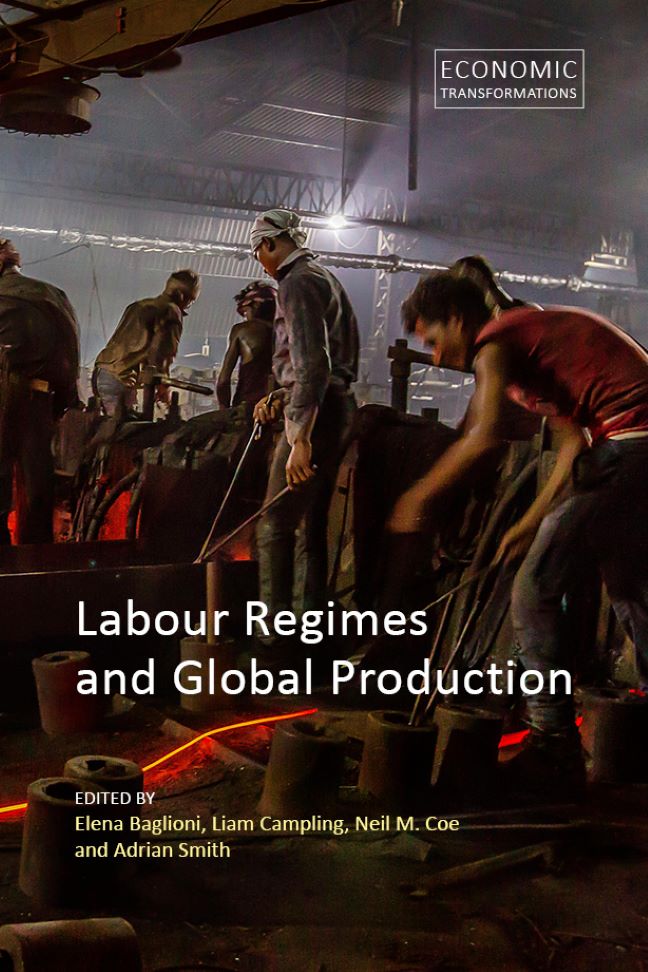2 - Gendered Labour Regimes in Global Production
Published online by Cambridge University Press: 20 January 2024
Summary
Introduction
For feminist scholars, it is axiomatic that, to understand labour regimes, one must look beyond the workplace. Specifically, we ask how axes of social difference beyond class – gender, but also race, caste, etc. and their multiple intersections – become constructed and/or mobilized in the production process in ways that create value for capital. In their classic enquiry into the relationship between “nimble fingers” and “cheap workers”, Elson and Pearson (1981) established a feminist political economy of globalization that centred the relationship between gender subordination and capitalist exploitation. Women were the preferred workforce on the global assembly line because the labour market functioned as a “bearer of gender”, pulling women into the factory and the condition of waged employment without liberating them from the “gender ascriptive relations” that structured the domains of family and household. As Elson and Pearson noted, gender was largely neglected in early analyses of the new international division of labour (Fröbel, Heinrichs & Kreye 1978). Within a decade, however, this neglect had given way to a growing consensus that the development strategies adopted across much of Latin America and Asia were “as much female led as export led” (Joekes 1987: 81). Feminist analyses of the NIDL diagnosed the intimate connection between two processes of incorporation: that of (mostly) previously unwaged women into the formal economy, and that of developing countries into global markets for manufactures and other processed goods (Nash & Fernandez Kelly 1983; Ward 1990).
What I call in this chapter the feminist NIDL literature extends from the 1980s to the 2000s. It comprises a rich and vast body of scholarship examining the gendered dimensions of economic restructuring and the turn towards export-oriented development in Mexico (Fernández-Kelly 1983; Iglesias Prieto 1985; Sklair 1993), Central America and the Caribbean (Safa 1995; Freeman 1993), Malaysia (Ong 1987), Thailand (Mills 1999), China (Lee 1998; Pun 2005), Indonesia (Wolf 1992), and Sri Lanka (Lynch 2007; Hewamanne 2008), among others. Focused originally on factory labour, it has expanded to include women's work in global service industries, including call centres (Patel 2010), data entry (Freeman 2000) and care work (Hochschild 2000; Parrenas 2001), as well as agriculture (Carney 1988; Dolan 2001). Collectively, this scholarship asks when and why women came to dominate the labour force in these globalizing sectors, and how waged employment affects the social status and livelihood prospects of women workers, their families and their communities.
- Type
- Chapter
- Information
- Labour Regimes and Global Production , pp. 29 - 44Publisher: Agenda PublishingPrint publication year: 2022
- 1
- Cited by

